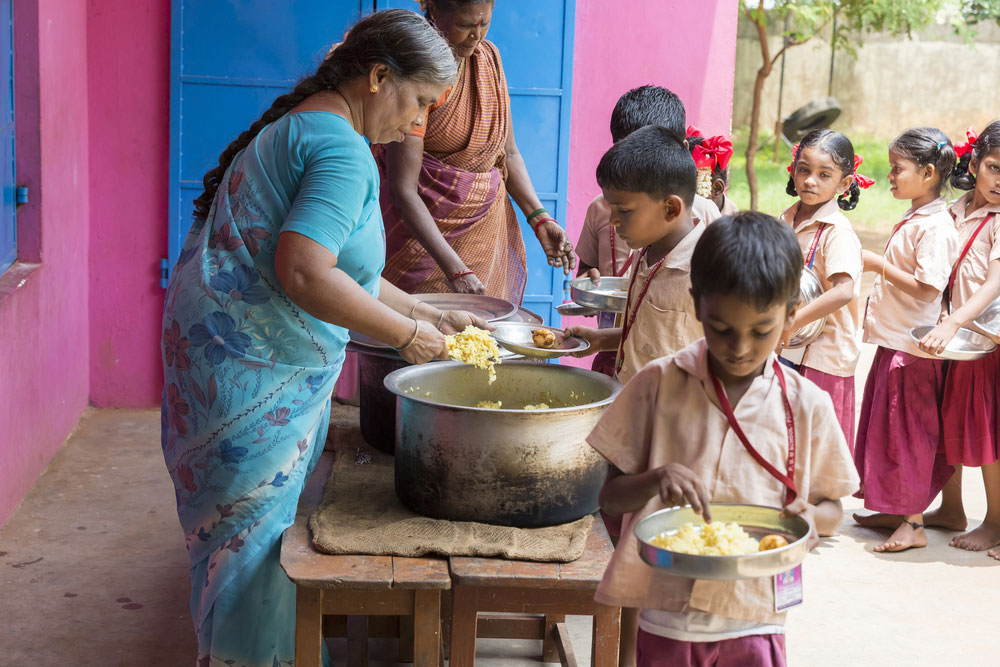YES
Health benefits
A non-vegetarian diet includes meat, eggs and fish. It has several health benefits because this type of food is rich in protein and Vitamin B. Non-vegetarian food strengthens our muscles and helps them grow faster. Imposing a vegetarian diet in schools will surely hamper the nutrition of growing children.
Farheen Ali,
Class XI, Kendriya Vidyalaya, Latehar, Jharkhand
Not a solution
Let’s forget the relative merits of the veg and non-veg diet for the moment and focus on another aspect — imposing. Imposing something is never a solution.
Anuja Pal,
Calcutta Girls’ High School
Eggs are all
What is wrong with a non-veg diet? It’s not like schools are serving mutton or chicken daily. What they serve is egg, a very good source of protein, which is necessary for growing children.
Md Faij Akhtar,
Durgapur Institute of Advanced Technology and Management, West Bengal
NO
Enough nutrition
It is wrong to say that a vegetarian diet will hamper nutrition. Cereals are a good source of carbohydrates. They are also rich in amino acid and methionine but deficient lysine. Pulses, on the other hand, are rich in lysine but deficient in methionine. So the combination of rice and dal that is provided as midday meal in schools will prevent deficiencies. Besides, soyabean is a rich source of protein and can be added to the diet. Leafy green vegetables too have various vitamins and minerals.
Sukumar Saha,
Jaipuria College, Calcutta
Statistically sound
Statistically, a large percentage of the population of our country is vegetarian from birth, and the majority of them are perfectly healthy and make a substantial contribution to the economy. This proves that a non-vegetarian diet is not essential for a healthy and productive lifestyle.
And scientifically, a large portion of non-vegetarian food products comprise proteins. Pulses too are rich in proteins. Hence, substituting non-vegetarian items with lots of pulses — and a balanced combination of other nutrients — will take care of the nutrition of schoolchildren.
Purna Dutta,
Indian Institute of Science Education and Research (IISER), Berhampur, Odisha
Substitute right
A meal can include all necessary nutrients, irrespective of whether it is vegetarian or not. Mainly meat acts as a source of protein. Beans, chickpeas or lentils are also good sources of protein and can act as good substitutes for meat in a vegetarian diet. All other important nutrients are also available in a vegetarian diet. Hence, imposing a vegetarian diet will not hamper the students’ nutritional intake.
Soham Pathak,
Class IX, La Martiniere For Boys, Calcutta
Minimises disease
Following a vegetarian diet has the advantage of minimising the risk of killer diseases such as obesity, diabetes and hypertension. This is because such a diet
is lower in animal protein and saturated fat. This ultimately leads to a long and healthy life. So imposing a vegetarian diet in schools will actually help save a costly life.
Mrittika Das,
Presidency University, Calcutta











